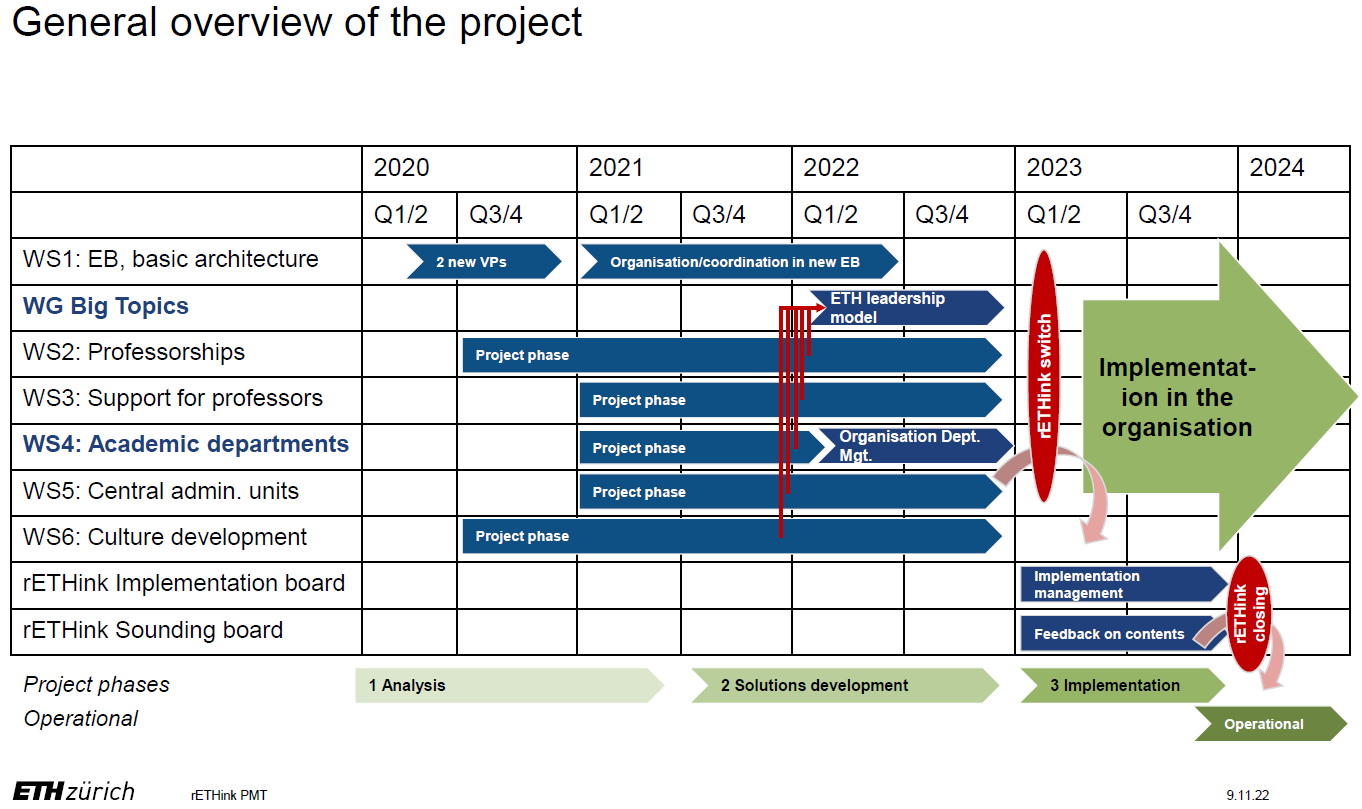Background and goals
Today ETH Zurich is in an excellent position and remains the most internationally renowned Swiss institution for teaching, research and knowledge transfer. However, the challenges facing the university have grown substantially over the past few years:
- One central factor is the high level of growth in general. Consider that in 2008, ETH Zurich was home to around 14,000 Bachelor's, Master’s and doctoral students, while today this figure stands at almost 25,000 – growth of more than 50 percent. During the same period, the number of professors grew by one-third, from 370 to around 530.
- Cultural diversity has also increased, with members of the ETH community now originating from 120 countries. This requires integration: an important but challenging task. Mentoring students is one of these tasks. This is an area where students rightfully have high expectations from teaching staff. Similarly, ETH staff need to feel that they are embedded in professional leadership structures.
- The growing workload of the Executive Board is limiting its capacity to concentrate on matters of overarching strategic importance.
- Society is taking a more critical view of some issues (e.g. animal experimentation) while raising its expectations of ETH (e.g. translating knowledge into innovation).
- On the administrative side, ETH Zurich is devoting increasing resources to obtaining basic funding and dealing with mounting regulations and compliance requirements. It has become increasingly necessary to justify the autonomy of the university, which is an essential precondition for carrying out successful research and teaching activities.
The rETHink project is intended to allow ETH Zurich to:
- further strengthen individual responsibility and scope for action on all levels: professorships, academic departments, Executive Board/central administrative units
- establish excellent professional structures throughout the university for mentoring students and managing staff
- strengthen strategic and operative leadership at all levels
- promote cooperation and the values that foster a sense of belonging among the ETH community.
Project structure and organisation
The rETHink project is being carried out in close cooperation with professors, academic departments and participatory bodies. It is divided into three phases: in-depth analysis is followed by the development of solutions, and finally the implementation phase.

